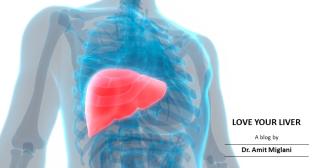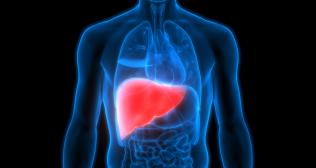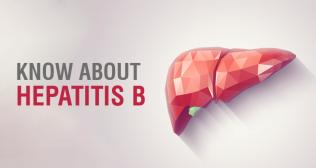
GI, Minimal Access, and Bariatric Surgeries
Introduction
GI or gastrointestinal surgery is a very specialised kind of medical treatment specifically aimed at diagnosing and treating diseases related to the digestive system. This large complex system comprises the stomach, intestines, liver, oesophagus, and other parts connected to these organs. GI surgery runs the gambit from simpler issues, like acid reflux, to more serious and deadly issues, like cancers of the colon. Such procedures are mostly employed for the management of patients whose conditions cannot be controlled by medication or non-invasive treatments and provide solutions that might drastically improve or even save lives.
One area where GI surgery has absolutely witnessed significant growth is modern medicine, with its thrust on minimal access surgery. It is also popularly known as laparoscopic or keyhole surgery. This approach offers surgeries through tiny incisions with the help of a small camera that gives a better view of the body’s interior to the surgeon. The smaller incisions cause less trauma to the body, thus permitting quicker recovery times, less post-operative pain, and shorter hospital stays. Most of the patients going for minimal access surgery can easily resume their daily activities much earlier than they might if they went for a traditional surgery. The technique has made GI surgery less scary and more accessible to many patients, with early intervention and treatment in most cases.
Another important speciality in GI surgery is bariatric surgery, which goes about curing people with extreme obesity by overcoming it through weight loss. Bariatric surgery refers to alterations in the GI tract that reduce either food intake or nutrient absorption so that big amounts of weight are lost for an extended period. To most individuals, bariatric surgery gives much more than just losing weight; it also removes other conditions associated with obesity, like diabetes, hypertension, and sleep apnoea and, therefore, benefits those patients’ quality of life.
The proper treatment from a GI surgeon of extraordinary qualifications is very important to be applied nowadays in the field of health care. Patients are empowered to take charge of their health and outcomes with care that offers early detection, proper treatment, and optimal recovery.
What are GI, minimal access, and bariatric surgeries?
GI surgery: GI surgery describes a broad scope of interventions involving any part of the digestive system, from the stomach to the liver and small intestine, and may extend even to the large intestine, colloquially known as the colon, or even the oesophagus. This is usually when other forms of treatment, such as medication or lifestyle adjustments alone, are not enough for the treatment of certain issues.
Some of the most common conditions treated by GI surgeons:
GERD or acid reflux: GERD is a long-term condition in which one suffers because stomach acid flows back into the oesophagus very frequently. So, when medications do not respond, GI surgery is normally recommended.
Gallstones: These are small hard particles that block the ducts through which bile flows. It can cause tremendous pain, and if this needs to be done, a GI surgeon will have no hesitation in removing the gall bladder.
Hernias: An extremely common condition in which an organ pops through a weakened area in the surrounding muscle or tissue, which might need a surgical repair.
Colon Cancer: Surgical intervention is sometimes needed as part of the treatment approach for cancers of the colon; part of the colon may be removed.
Ulcerative colitis and Crohn’s disease: These are inflammatory bowel diseases that can lead to surgery when manifestations are severe.
Obesity: Bariatric surgery can therefore be employed to treat intense obesity that could not be managed with diet and exercise.
Minimal access surgery: This is one of the most advanced techniques applied in surgery. It allows surgeons to enter a relevant region using small incisions. Laparoscopes are one of the thinnest tubular instruments with a camera inside, allowing the surgeon to see or reach out and work on the affected place without having to make large incisions.
Techniques involved in minimal access surgery: Laparoscopy entails small holes and a camera through which the procedure is performed; scarring is minimal, and recovery is fast.
Robotic-assisted surgery: It is the perfect combination of accuracy that a robot provides and the expertise of an experienced surgeon for improving the precision and effectiveness of complex procedures.
Endoscopic surgery: The medical body part is reached from the inside by introducing a scope through the natural openings of the mouth or other parts without an incision on the outside.
Bariatric surgery: Bariatric surgery is normally prescribed to patients who have extreme obesity and cannot lose weight with the help of lifestyle changes and medications. There are two general goals of bariatric surgery: It either reduces the stomach’s holding capacity at any time or diminishes the nutrient absorption by the gut, which then yields long-term maintenance of weight loss.
Types of bariatric surgery:
Gastric bypass: The surgeon creates a small pouch at the top of the stomach and connects it directly to the small intestine, bypassing parts of the digestive tract.
Sleeve gastrectomy: Sleeve gastrectomy requires the removal of a large part of the stomach. Since the stomach has been reduced in its capacity, this limits the intake of food into the stomach.
Adjustable gastric banding: A band will be placed on the top portion of the stomach to create a small pouch so that food intake may be minimised.
Which diseases are treated by a GI surgeon?
GI surgeons deal with a wide spectrum of benign to threatening conditions. Some of the common diseases treated include:
Colorectal cancer: A GI surgeon can remove parts of the cancerous colon and rectum and reconnect the remaining healthy parts.
Inflammatory bowel disease: Portions of the bowel should be removed for seriously ill patients with Crohn’s disease or ulcerative colitis.
Diverticulitis: Small bulging pouches in the digestive tract may need to be surgically removed if they get infected or inflamed.
Bowel obstruction: This results from either an intrinsic or an extrinsic cause. Bowel obstruction often mandates a surgical intervention to clear up the blockages and restore digestive function to its normal state.
Techniques used in GI surgery
Modern GI surgery employs a lot of techniques that vary across the disease being treated, the patient’s medical condition, and the experience of the surgeon. The best gastroenterology hospital always provides the most modern and least invasive techniques to date.
Some of the key techniques include:
Open surgery: The traditional approach to GI surgery is open surgery, a wide incision on the abdomen to permit direct access to the affected area. This technique is still frequently employed, especially when large tumours are to be removed or when the condition is too complex for minimal access surgery.
Laparoscopic surgery: One of the most innovative approaches in GI surgery, it employs very small incisions that are less than an inch in length to facilitate the procedure. The other instruments and a laparoscope—the flexible, thin tube with a camera at the end—are inserted into those incisions for the completion of the surgery. It is made possible by a camera that works by capturing an enlarged, high-resolution of the inside organs and then relaying them to a monitor for viewing, thus making it possible for the surgeon to do remarkably subtle procedures without ever needing to open up the abdominal cavity.
Endoscopic procedures: They are far less invasive and, therefore, used primarily for diagnostic purposes and the accomplishment of some modes of therapy. It employs an endoscope-that is-a very thin flexible tube with a light and camera attached to it, which is inserted through the natural openings, mouth, rectum, or anus into the digestive tract. Sometimes, the endoscope passes small instruments through to perform minor surgery, such as removing polyps, treating bleeding ulcers, or stricture dilatation.
Benefits of early detection and treatment
With proper and early diagnosis, GI conditions can surely take way better turnarounds. Whether it is the early detection of cancer or even the control of chronic diseases like Crohn’s disease, early intervention will minimise complications and hasten recovery.
Key benefits of early detection
- Simple procedures: Surgery often becomes much simpler and less invasive if dealt with early.
- Probability of cure: Chances for recovery are much higher when one intervenes as early as possible, which would often lead to having very satisfactory and long-term results for the patient.
- Shorter hospital stays: Usually, when one addresses the illness at an early stage of formation, it is expected that the patient would recover faster and get back into their usual lifestyles much sooner.
- Less inpatient stay: Early treatment and less invasive methods often lead to less hospitalisation stay and rapid recovery time.
Preventive measures and periodical check-ups
Regular check-ups and screenings, especially regarding conditions like colon cancer, should be able to identify the problem early so as not to allow the problem to get out of hand. Consultation with a GI surgeon at a reputable gastroenterology hospital is one of the important factors in good gastrointestinal health and can prevent potential problems from going out of control.
What should you expect while consulting a GI surgeon?
A consultation with a GI surgeon is usually an assurance and informative experience.
First consultation:
- Your physician will begin by taking your history and noting what you feel.
- He will then order the following diagnostic tests based on the symptoms – endoscopy, colonoscopy, or other imaging studies.
- The surgeon will discuss the current treatment options according to the diagnosis from your tests.
Pre-operative preparation:
- Discuss medications: Make sure to discuss with your surgeon the medications you are on as some need to be stopped at least a week before the surgery.
- Pre-surgical instructions: Your surgeon will advise precisely what you should do regarding fasting for the surgery, among other instructions.
- Post-operative care: Based on the surgery, you might need help in the days following the surgery. Prior to leaving the hospital, make sure to plan to have someone come home to care for you for at least the first two or three days after the surgery.
Recovery after the surgery
- Observation: Immediately after the surgery, the patients are observed to ensure proper healing of the wound.
- Follow-up appointments: Once a patient is discharged after the surgical procedure, the surgeon holds follow-ups to catch up on the progress of the patient, weigh any concerns raised, and make some corrections in the treatment.
Conclusion
GI surgery is, therefore, composed of minimal access and bariatric procedures. This type of surgery contributes to managing and treating many digestive disorders. Patients can now opt for less invasive approaches in several surgical techniques using laparoscopic, robotic-assisted, and endoscopic surgeries that enable them to enjoy rapid recovery with reduced pain and minimal scarring, hence returning people to their usual lives sooner with better outcomes. Moreover, earlier detection and treatment will mean better care. Consulting the most qualified GI surgeons at the best gastroenterology hospital ensures access to state-of-the-art care. It promises healing and hope, whether it is for surgery in regard to obesity or more challenging gastrointestinal disorders.
Popular Searches :
Hospitals: Cancer Hospital in Delhi | Best Heart Hospital in Delhi | Hospital in Amritsar | Hospital in Ludhiana | Hospitals in Mohali | Hospital in Faridabad | Hospitals in Gurgaon | Best Hospital in Jaipur | Hospitals in Greater Noida | Hospitals in Noida | Best Kidney Hospital in Kolkata | Best Hospital in Kolkata | Hospitals in Rajajinagar Bangalore | Hospitals in Richmond Road Bangalore | Hospitals in Nagarbhavi Bangalore | Hospital in Kalyan West | Hospitals in Mulund | Best Hospital in India | | Cardiology Hospital in India | Best Cancer Hospital in India | Best Cardiology Hospital in India | Best Oncology Hospital In India | Best Cancer Hospital in Delhi | Best Liver Transplant Hospital in India
Doctors: Dr. Rana Patir | Dr. Rajesh Benny | Dr. Rahul Bhargava | Dr. Jayant Arora | Dr. Anoop Misra | Dr. Manu Tiwari | Dr. Praveer Agarwal | Dr. Arup Ratan Dutta | Dr. Meenakshi Ahuja | Dr. Anoop Jhurani | Dr. Shivaji Basu | Dr. Subhash Jangid | Dr. Atul Mathur | Dr. Gurinder Bedi | Dr. Monika Wadhawan | Dr. Debasis Datta | Dr. Shrinivas Narayan | Dr. Praveen Gupta | Dr. Nitin Jha | Dr. Raghu Nagaraj | Dr. Ashok Seth | Dr. Sandeep Vaishya | Dr. Atul Mishra | Dr. Z S Meharwal | Dr. Ajay Bhalla | Dr. Atul Kumar Mittal | Dr. Arvind Kumar Khurana | Dr. Narayan Hulse | Dr. Samir Parikh | Dr. Amit Javed | Dr. Narayan Banerjee | Dr. Bimlesh Dhar Pandey | Dr. Arghya Chattopadhyay | Dr. G.R. Vijay Kumar | Dr Ashok Gupta | Dr. Gourdas Choudhuri | Dr. Sushrut Singh | Dr. N.C. Krishnamani | Dr. Atampreet Singh | Dr. Vivek Jawali | Dr. Sanjeev Gulati | Dr. Amite Pankaj Aggarwal | Dr. Ajay Kaul | Dr. Sunita Varma | Dr. Manoj Kumar Goel | Dr. R Muralidharan | Dr. Sushmita Roychowdhury | Dr. T.S. MAHANT | Dr. UDIPTA RAY | Dr. Aparna Jaswal | Dr. Ravul Jindal | Dr. Savyasachi Saxena | Dr. Ajay Kumar Kriplani | Dr. Nitesh Rohatgi | Dr. Anupam Jindal
Specialties: Heart Lung Transplant | Orthopedic | Cardiology Interventional | Obstetrics & Gynaecology | Onco Radiation | Neurosurgery | Interventional Cardiology | Gastroenterologist in Jaipur | Neuro Physician | Gynecologist in Kolkata | Best Neurologist in India | Liver Transfer | Best Cardiologist in Delhi



















